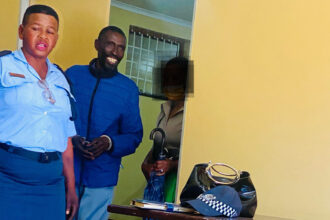President Duma Gideon Boko’s inaugural State of the Nation Address (SONA) this week has drawn a variety of reactions, with citizens and advocacy groups voicing their sentiments, some commending his vision while others highlighting areas they feel were overlooked.
Monametsi Sokwe
I am happy that the second Republic has dignified the burial of Gaoberekwe Pitseng.
I am also happy that the SONA recognized the single most threat to our nation being declining birth rates.
I am of the view that this dialogue has to be expedited. There is a lot that has to be achieved in a short time, so I am further happy that the President has called for all hands-on deck.
As civil society leaders, we hope the second Republic will, unlike the previous one, meet with us so that we can share how we see civil society working with other institutions to accelerate implementation.
Civil Society has more than enough potential to help move development but for the longest time has been pushed to majoring in minor issues.
Civil Society should be facilitated to fight unemployment, poverty, health and educational challenges among others.
We hope that the government will be rigorous in reforming the public service, which is inefficient, unproductive, frustrating and corrupt.

The last administration was the worst in dividing the nation by promoting tribalism and nepotism.
This is a real challenge that needs to have been mentioned and has to be dealt with forthwith.
We hope that the new government will look at issues around appointment of Senior government officials, Boards of SOE and statutory government committees because most of these appointments were made along tribal lines, thus robbing Botswana of capable talent and crippling institutions while promoting corruption.
It was therefore imperative for it to have been mentioned as it affects development and national unity.
The 2nd Republic must avoid the ego stroking of our civil service and elected politicians, distracting them from the real issues.
There was a mention of economic reforms which we believe are paramount.
Our model of development is unsustainable and we hope as indicated in the SONA the 2nd Republic will realize that government officials do not have monopoly of thought, but innovation is abundant in the private sector, citizens and civil society and all these sectors need to be involved in not only coming up with solutions, but also be allowed to fund them, implement them through government facilitation.
You know we pushed for constitutional reform, it wasn’t mentioned but I believe the maiden SONA on its own is not absolute government policy and we look forward to dialogue around constitutional review.
Boitumelo Pauline Marumo – Climate Justice Advocate
In his maiden State of the Nation Address, President Gideon Duma Boko said that for Botswana to protect our most valuable asset, our natural environment, there must be policies that prioritise its protection.
One of the three mentioned initiatives is launching a comprehensive National ESG Strategy, signaling a transformative shift.
This will be the first time Environmental, Social and Governance (ESG) will be prioritised at the national level with a dedicated policy document.
But what is ESG and how can the population and businesses be a part of this pivotal moment in the country’s journey toward sustainable development?
For industries, Botswana’s National ESG Strategy offers a pathway to enhance competitiveness and resilience.
Green finance, a critical component of the strategy, is set to open up access to international funding streams, enabling investments in renewable energy, waste management, and conservation initiatives.
SustainaBiz Consulting, a BQA accredited local ESG training and advisory company, with its demonstrated competence in ESG and sustainability management, can play a crucial role in facilitating this transition by providing feasibility studies, ESG risk assessments, and sustainability reporting, ensuring that businesses meet the rigorous standards required by global investors.

In a landscape where ESG has traditionally been championed exclusively by a few industry leaders, the government’s adoption of this methodology represents a national shift.
There is now a knowledge and resource gap for SMMEs, as well as a greater need for leadership capacity building, tailored sustainability frameworks, ESG audits and reporting for all industries.
As the government seeks to enforce the National ESG Strategy, businesses in Botswana, SMMEs in particular, might face new compliance requirements, such as adhering to stricter environmental regulations or incorporating social responsibility into their operations.
While these regulations aim to promote sustainability, they could increase operational costs for small businesses unless adequate support is provided.
Climate change threaten our planet, organisations are becoming increasingly aware of the damage they can have on the environment, and the efforts that must be taken to diminish these environmental impacts.
In this way, how a company contributes to environmental issues, from greenhouse gas emissions, carbon footprint, resource usage, waste policies and energy needs are under great scrutiny, and these aspects are all taken into consideration when tracking an organization’s sustainability practices.
There are more opportunities that exist for ESG integration in Botswana.
According to PWC governments can design VAT systems that support environmental sustainability, promote social equity, and uphold strong governance standards.








